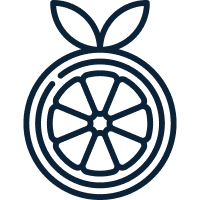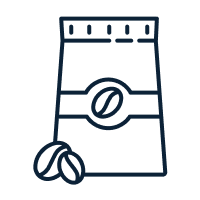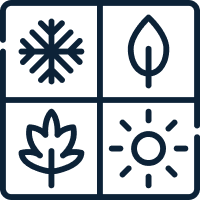This blog post is republished from one of our partners, Trade Coffee. We think they did a great job outlining what Joven is all about, so we wanted to share it with you all!
Article By: Randy Miller | July 29, 2020
By 13-years-old, Frankie Volkema was already a licensed Q Grader (if that doesn't impress you, this helpful guide on what it takes to earn coffee's premier certification might). But, as you would expect of anyone who sets such lofty goals for themselves, Frankie wasn't content to stop there.
Today, Frankie is launching the Joven label under her family's roaster, Sparrows Coffee in Grand Rapids, Michigan. A coffee with a cause, Joven sets out to raise up Frankie's fellow youth in coffee. Read on to learn more about the inspiration and purpose of Joven.
How did you first get interested in coffee?
"My dad bought a small roasting company (Schuil Coffee) in Grand Rapids when I was eleven, after our family moved there a couple years earlier. I had never even tried coffee before that, but I started spending a lot of my time there. I helped out in the retail shop whenever I was needed, and I began to learn more about coffee.
Schuil had these old posters on the walls with random facts about coffee, maps of coffee growing regions, and tips about tasting coffee. I have always been a curious person, so I liked to read the posters. Just being surrounded by coffee made me want to learn more."
Tell us about your journey to becoming a Q Grader.
"At the same time that my curiosity for coffee was growing, my dad had hired a Q Grader to help him evaluate the coffees Schuil was selling. My dad asked me one day if Q grading would be something I would enjoy. We looked into whether I had to be a certain age to take the course, but we didn't find anything. My dad signed us both up after confirming with our instructor that it would be OK. He and I prepared by cupping a lot together and practicing the Le Nez kit scents that are part of the test.
In May of 2019, I took nineteen tests, some knowledge but most sensory, and I passed all of them but one. I was told that this is pretty good for anyone, let alone a kid (that made me feel better about it). Fortunately, you can retake parts of the test you don’t pass.
That summer, my family went on a road trip vacation and stopped in Greenville, South Carolina on the way for my final test, coincidentally on July 13, 2019, my thirteenth birthday. I passed and became a Q Grader on my birthday! (Actually, you don’t find out until a week later, but it was still cool that it happened.)"
What was the inspiration for founding Joven?
"During my Q course, one of my instructors talked about the fact that the average age of coffee farmers, especially in Central and South America, is very high. Then, when my dad and I traveled to Colombia to taste coffee and meet some farmers and co-ops we work with, we heard it over and over again. It’s a huge issue that isn’t getting much attention here in the US. With me being such a young person, it seemed like a good fit to team up with other young people in coffee to try to solve this problem."
What are Joven’s leading principles?
"Securing the future of coffee by supporting young farmers. The coffee industry has a problem: The typical age of a coffee farmer is 55 or older, and we are facing a severe talent shortage in the near future. Most young people are uninterested in coffee farming because they view it as a low-income option.
Together we can change this. Joven will do its part by celebrating young farmers who are producing great coffee. Specifically, Joven will feature coffees that score 84 points or higher and are produced by farmers under the age of 35."
How does Joven approach sustainability?
"Joven is putting another lens on sustainability by looking at the next generation of coffee producing talent. Yes, we pay high prices for high quality coffee, which is a form of sustainability on its own. But Joven’s primary focus is on building an awareness of the need for more young coffee farmers and generating interest for existing young farmers’ coffee."
What excites you most about the future of coffee?
"The focus on quality. The majority of coffee drinkers still think of coffee as fuel, but there’s a growing group who care a lot about how it tastes and how it was produced. This is great for farmers, because it gives them a reason to produce coffee with enough care to bring out the best taste in their beans. Customers are willing to pay more for better coffee, and the farmers make more money that way.
I’m also excited to see more young people become involved in the industry. I have already learned about young farmers around the globe. We need more, but there are many out there doing great work! But I am also excited to educate more people on the amount of time, effort, and skill that it takes to make the cup of coffee that they drink every morning."
How do you hope to inspire the next generation?
"I’m just a teenager who got interested in coffee, saw an issue, and tried to come up with a way to help. I definitely had people alongside me developing the idea of Joven. I hope my work lets young female entrepreneurs know that if you care about something, pursue it — and that your ideas always matter. You’ll be surprised how interested people will be in your ideas if you tie it to a cause you care about!"
What advice would you give to someone just getting into coffee?
"I have a few tips: First, experiment with different drinks. I started out with lattes and mochas from coffee shops and then over time moved into drinking coffee black. I still really like lattes and mochas though!
Second, for brewing coffee at home, buy a grinder. Fresh coffee tastes better than stale coffee. There’s nothing better you can do to maintain freshness than keep coffee in its whole bean form as long as possible.
Third, don’t evaluate a coffee when it’s super-hot. Let it cool down a little, coffee’s taste components will come out much more clearly (and you won't burn your tongue).
Fourth, so many people are at different levels of interest when it comes to coffee. Find a friend who can tell you the best coffee shops, brewing methods, coffees, etc. This can be a great resource to learn more about coffee and where to find good coffee. Plus, it’s fun to talk about!"
Where do you hope to see Joven in the next 10 years?
"To have a big impact and entice a lot more young people in coffee producing countries to take up coffee farming, I think we need to develop a big following of customers who care about this issue.
If young people know there’s a market for high-quality coffee produced by them — and that they can sell it at a high price — that will help! The more customers (and even coffee shops and stores) that get excited about supporting young farmers, the more impact we can have. I believe you have to think big in order to have any chance at making a big difference."

 Flavored
Flavored
 Decaf
Decaf
 Packets
Packets
 Seasonal Coffees
Seasonal Coffees


